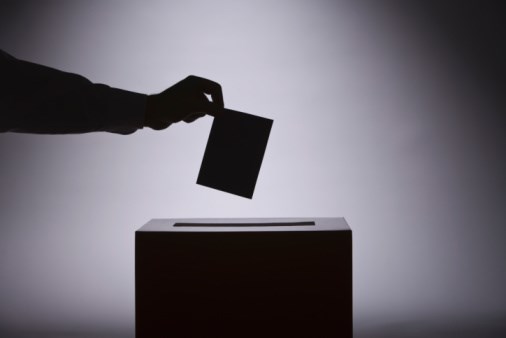The final results might not be clear for days, but Tuesday’s tight election results show that the sa���ʴ�ý Liberals have lost their connection with significant numbers of voters, and the New Democrats have found new strength.
The vote tallies see-sawed back and forth all night, but at press time, the Liberals and NDP were close to a tie, with neither holding the 44 seats needed for a majority. That could leave the Green Party holding the balance of power. It’s a startling turn of events and uncharted waters for the vast majority of voters in sa���ʴ�ý, which hasn’t seen a minority government since 1952.
The absentee ballots, which will not be counted for 10 days, could change the results in several ridings. This one is still too close to call.
What happens now will depend upon the final seat counts. If there is no clear majority, will the Greens support the NDP informally, or enter a formal coalition? Will Liberal Leader Christy Clark try to govern? Will Clark or Horgan, whoever becomes premier, try to force an early election?
The last option is perilous, because voters, already clearly disenchanted, will almost certainly punish a party that sends them back to the ballot box so soon.
Regardless of what happens to the seat counts, however, the campaign magic that won Clark an unexpected victory in 2013 didn’t work this time. Her party appears to have dropped seats, including some cabinet ministers, while the NDP picked up several.
The sa���ʴ�ý Liberals promised voters continued balanced budgets, a freeze on personal income taxes and an eventual end to MSP premiums. Clark campaigned with her usual enthusiasm, and kept her message focused: jobs.
For almost every riding and to almost every question, the answer was jobs. Is affordability a problem? A job is the best way to be able to afford a decent place to live. Are 20 per cent of children living in poverty? The best way to haul kids out of poverty is to make sure their parents have jobs. Are the resource-dependent communities suffering? Their residents need jobs.
Even though the bonanza Clark promised during the 2013 election from liquefied natural gas now looks like a pipe dream, she still clung to it during the 2017 campaign, because of the jobs. She maintained the industry would thrive, even if the multibillion-dollar payout to the people of sa���ʴ�ý doesn’t materialize. It would still produce jobs, she said.
That pitch seemed to play well early in the campaign, but the lustre faded, perhaps because British Columbians saw that jobs aren’t the answer to every question. Governing is not that simple.
Horgan and the NDP promised $717 million in new spending, with a surplus of $108 million in 2017-18 thanks to cost savings and new revenues. They offered $10-a-day child care, an increase in the corporate tax rate to 12 per cent and $400 a year in rebates to renters.
Horgan’s strategy in this campaign turned away from that of former leader Adrian Dix in the 2013 campaign. Dix took the high road, and refused to “go negative” by attacking Clark and her record. That decision, along with his sudden decision to oppose the Kinder Morgan pipeline expansion, were widely seen as the major causes of the NDP’s defeat.
This time, Horgan went after Clark for being more concerned about corporations than about people, more focused on economic growth than humanity.
Horgan struggled to project a presence to contrast with Clark’s persona during legislature sittings. Between sittings, he almost disappeared. Premiers always have an advantage in getting the public’s ear outside the house, and it takes a strong, savvy opposition leader to come close to matching that pulpit.
Despite those handicaps, however, Horgan and his party find themselves stronger, and possibly back in power after 16 years.
The number-crunchers have yet to weigh in with their analyses, but it could be that the Greens under Andrew Weaver snatched more votes from the Liberals than from the NDP. In any case, if their three-seat total holds, they will have done far better than many people expected. Weaver, the neophyte politician, has proved himself a quick learner.
He will find himself in a position that would test the skills of even the most experienced parliamentarian and political strategist.
Whether the final tally leaves us with a minority government or a slender majority, Premier Clark or Premier Horgan will be in an even more challenging position.
The perils of minority governments or governments with tiny majorities are illustrated by the fates of two Clarks: Joe and Glen.
When federal Progressive Conservative leader Joe Clark was elected with a minority government in 1979, he determined to govern as if he had a majority. That hubris lasted less than a year, until a resurgent Pierre Trudeau swept him from office.
In sa���ʴ�ý in 1996, New Democrat Glen Clark won power with a slim majority of only three seats. With that shaky ground under his feet, he governed as if he could face an election at any moment.
Long-term planning went out the window as the government frantically tried to keep itself ready to go to the polls.
Our new government will have to be wary of the dangers of both these attitudes.
British Columbia is entering uncharted waters. Whatever happens next, there will be turmoil, and it is likely the next premier of the province will be chosen by one person: Andrew Weaver.



